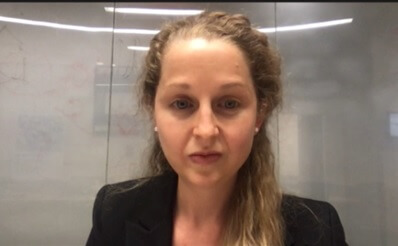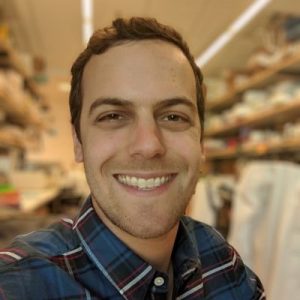Recent Advances in CAR T-Cell Therapy Development
Currently, four CAR T-cell therapies have been approved by the FDA to treat a range of hematological malignancies. However, treating solid tumors has been a challenge and several ongoing studies are striving to overcome it. At the virtual AACR conference, a few such studies were presented.
Identification of Transcription Factors Contributing to CAR-T Cell Dysfunction
The inefficacy of CAR-T against solid tumors is attributed to the fact that CAR-T cells become dysfunctional when they enter the tumor microenvironment. To investigate this, Dr. Charly Good and her coworkers at the University of Pennsylvania developed a model to identify factors contributing to the dysfunction of CAR T in solid tumors. Her model uses healthy donor-derived CAR T cells and exposes them to pancreatic tumor cells for long periods of time.
 Dr. Charly R. Good, University of Pennsylvania
Dr. Charly R. Good, University of Pennsylvania
After chronic exposure, CAR T cells had reduced growth, and a reduced ability to kill tumor cells. These cells show induction of Natural Killer (NK) cells receptors and markers of CAR T exhaustion. By analyzing the gene expression signatures of the exhaust populations, Dr. Good also identified several transcription factors that could lead to changes in CAR T exhaustion. Only two transcription factors, ID3, and SOX4, were expressed in the chronically exposed cells, which could suggest that ID3 and SOX4 are mediating the CAR T dysfunction. Future experiments will determine if targeting these factors can prevent or overcome exhaustion.
Giving a “rest” Period to CAR-T Cells Reinvigorates Them to Fight Cancer
Dr. Evan Weber, a postdoctoral fellow at Stanford, presented his work developing CAR T cells that be turn off and on to overcome exhaustion. He engineered T cells that express CAR linked to a destabilizing domain. When a stabilizing drug is present, this modified CAR is expressed on the surface of the cells. However, in the absence of the drug, the CAR is not expressed. CAR T cells that are always active become exhausted and lose anti-tumor capabilities. However, giving CAR T cells a period of “rest” reinvigorated them. These cells showed transcriptional and epigenetic changes that closely resembled CAR T cells that were not exposed to chronic CAR signaling and better at killing cancer tumor cells.
 Dr. Evan Weber, Stanford University
Dr. Evan Weber, Stanford University
To verify this observation, dasatinib, a kinase inhibitor that leads to “rest” of CAR T cells, was used to treat the cells in vitro and in vivo. These cells showed a decrease in exhaustion-associated genes and restored ability to kill tumor cells. Together, these observations suggest that temporarily suppressing the expression of CAR in cells, could lead to better efficacy of CAR T cell therapies.
Developing a Dual-targeted Fine-tuned Immune Restoring (DFIR) CAR-T for Kidney Cancer
Dr. Yufei Wang from Dana-Farber Cancer Institute presented her work developing a dual-targeting fine-tuned immune restoring (DFIR) CAR T cell therapy against clear cell renal cell carcinoma (ccRCC). Her approach was to engineer cells with 3 crucial characteristics:
- They target both CAIX and CD70.
- They become active only in the presence of cells that highly express these receptors.
- Release checkpoint inhibitors to reactivate the immune response.
 Dr. Yufei Wang, Dana-Farber Cancer Institute
Dr. Yufei Wang, Dana-Farber Cancer Institute
She showed that her modified cells could kill ccRCC that expressed one or both receptors targeted. Additionally, her cells were fine-tuned to target only cells with high levels of CAIX, and as a result, on-target off-tumor toxicity was reduced. In an in vivo model of ccRCC, her CAR T cells armed with an anti-PD-L1 antibody were better at reducing tumor size, tumor weight, and it reduced genes associated with exhaustion. Together these observations make a compelling case to use these DFIR CAR T cells to treat ccRCC.
Related Article: New Strategies to Improve Adoptive Cell Therapies for Solid Tumors
©www.geneonline.com All rights reserved. Collaborate with us: service@geneonlineasia.com









